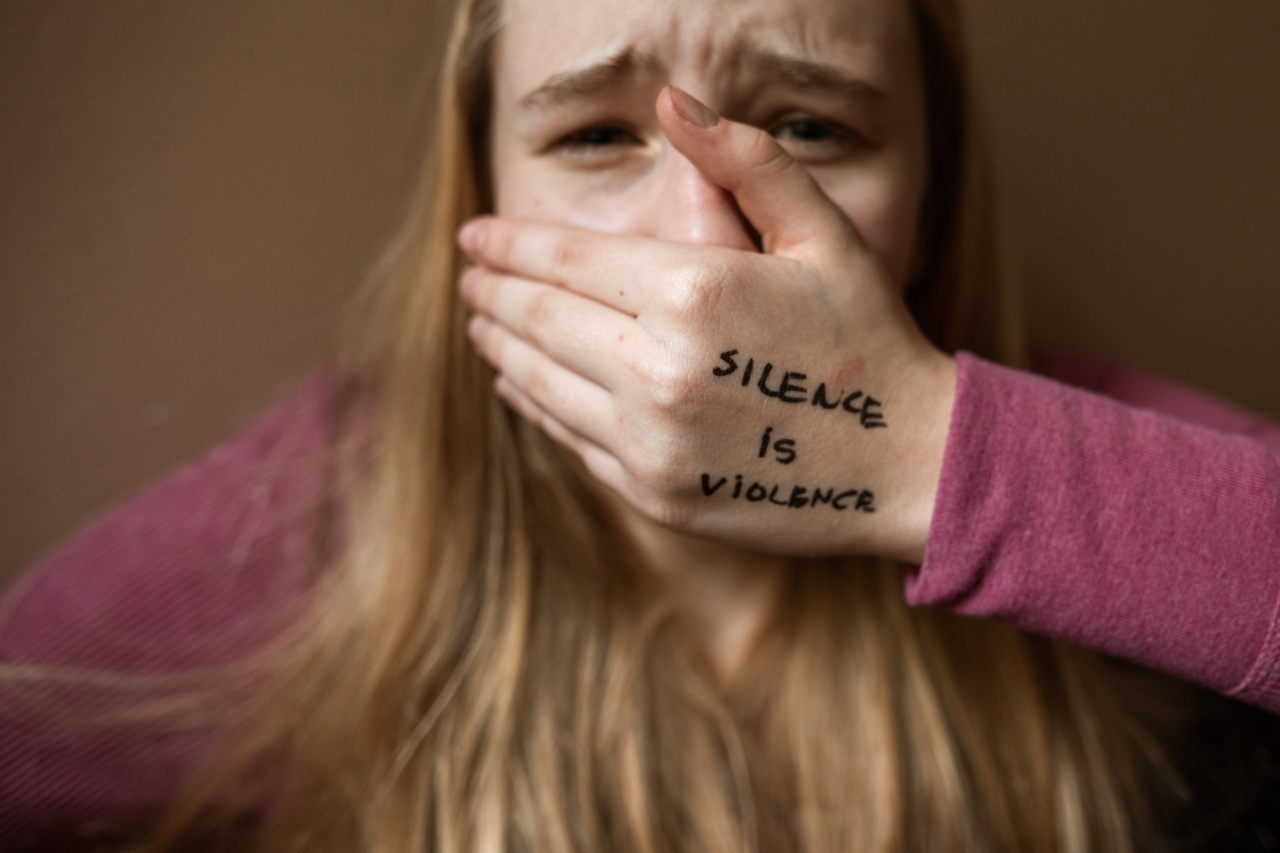Social anxiety is characterized by excessive worry and fear of social situations. This disorder affects millions of people worldwide and can lead to numerous negative effects on their daily lives, including their sexual health.
What is Social Anxiety?
Social anxiety disorder (SAD) is a mental health disorder that is characterized by persistent fear or anxiety in social situations. The anxiety is often triggered by the fear of scrutiny or negative evaluation by others.
Individuals with SAD often avoid social situations or endure them with extreme discomfort, leading to a significant impairment in daily functioning.
Effects of Social Anxiety on Sexual Health
Social anxiety can have various negative effects on an individual’s sexual health, including:.
1. Erectile Dysfunction
Men who have SAD may experience erectile dysfunction (ED) due to their anxiety leading to decreased sexual desire and inhibiting sexual performance.
Studies suggest that anxiety can cause a reduction in blood flow to the genitals, leading to difficulty in achieving or maintaining an erection.
2. Anorgasmia
Individuals with SAD may experience anorgasmia, which is the inability to achieve an orgasm. Anxiety can disrupt the necessary concentration, focus, and relaxation needed to reach sexual climax.
3. Sexual Aversion
SAD can lead to extreme sexual aversion, where individuals have an irrational fear, hatred, or avoidance of any sexual activity.
Those with SAD may experience an intense fear of sexual intimacy, leading to avoidance and hampering any sexual relationships.
4. Fear of Condom Use
Individuals with social anxiety may experience a fear of condom use, making them vulnerable to sexually transmitted infections (STDs) and unwanted pregnancies.
Condoms can be seen as a potential barrier to social interaction, leading to refusal to use them and increasing the risk of sexual health problems.
5. Low Self-Esteem
Social anxiety can lead to lower self-esteem, leading to an individual feeling less desirable or ashamed of their sexual interests.
This can lead to sexual dysfunction, avoidance of sexual activities, and difficulty forming intimate relationships.
6. Relationship Problems
Social anxiety disorder can lead to problems in relationships, including sexual ones. The anxiety and fear of social situations can lead to difficulty starting and maintaining intimate relationships.
The condition can also lead to increased conflict and decreased satisfaction in the relationships.
7. Reduced Sexual Frequency
SAD can lead to reduced sexual frequency due to the fear of sexual performance, avoiding intimacy with partners, and low self-esteem.
Reduced sexual frequency can lead to decreased sexual satisfaction, relationship problems, and decreased physical and emotional affection.
8. Sexual Dysfunctions
Social anxiety can result in various forms of sexual dysfunctions, including low sexual desire, ED, anorgasmia, and premature ejaculation.
These dysfunctions can lead to negative psychological effects, relationship problems, and decreased sexual satisfaction.
9. Difficulty in Sexual Communication
Individuals with SAD may find it difficult to communicate about their sexual needs or concerns, making it difficult to have fulfilling sexual relationships.
The fear of negative evaluation and scrutiny by others can lead to a reluctance to bring up sexual health concerns or a fear of embarrassment during sexual communication.
10. Negative Body Image
Those with SAD may experience negative body image, leading to low self-esteem and sexual dysfunction.
Negative body image can lead to avoidance of sexual activities or relationships, leading to decreased sexual satisfaction and difficulty in intimate relationships.
Conclusion
Social anxiety can have a significant impact on an individual’s sexual health. The effects of SAD on sexual health can lead to numerous negative consequences, including relationship problems, sexual dysfunctions, and reduced sexual frequency.
It is crucial for those with social anxiety disorder to seek mental health treatment and interventions to prevent negative outcomes in their sexual health.































